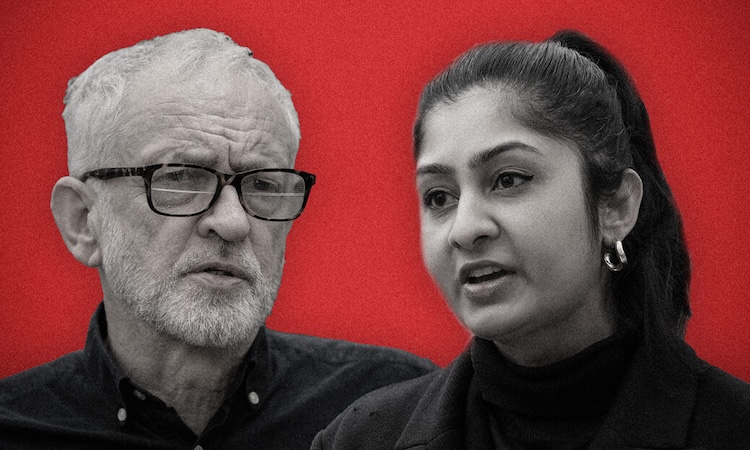“From the standpoint of the economic conditions of imperialism – ie, the export of capital and the division of the world by the ‘advanced’ and ‘civilised’ colonial powers – a United States of Europe, under capitalism, is either impossible or reactionary …
“Of course, temporary agreements are possible between capitalists and between states. In this sense a United States of Europe is possible as an agreement between the European capitalists … but to what end? Only for the purpose of jointly suppressing socialism in Europe … On the present economic basis, ie, under capitalism, a United States of Europe would signify an organisation of reaction.” (On the slogan for a United States of Europe by VI Lenin, 23 August 1915)
Although the specifics of the situation have changed considerably since Lenin wrote the above words over 100 years ago, the essence remains the same. A union of imperialist states can only be a reactionary entity. And it can’t last.
For those of us who enjoy interacting with the people of countries other than our own, enriching ourselves by getting to know other cultures, and who identify with workers of other countries, it is extremely counterintuitive to stand against the European Union, which seems to be a vehicle for facilitating communication across international boundaries and bringing workers of different nationalities closer together.
Nevertheless, although the European Union undoubtedly does have its beneficial aspects, it remains the case that in essence it is an imperialist outfit, designed to enable the bourgeoisies of the various imperialist countries to be strong enough financially and militarily to safeguard their imperialist status as against (a) their imperialist rivals, (b) the oppressed countries that they exploit, and (c) the working classes of their own countries.
Of course, in opposing the European Union, socialists find themselves in extremely nauseating company – from the anti-immigrant, xenophobic and islamophobic sections of society, to the little Englanders harking back to the imperial glory days when Britannia ruled the waves all on its little own. The little Englanders imagine that it is somehow possible for that glory, if you can call it that (not everybody would agree), to be restored under the leadership of the right political party.
There are also the miserly types who don’t want to pay the price of membership, which, as far as they are concerned, wipes out the significant advantages to British imperialism of being a part of the EU: all they can see is how much it costs to maintain the common agricultural policy; how much it costs to keep afloat those who have been financially bankrupted by the workings of the capitalist system, how much it costs to provide the working class with minimally acceptable living and working conditions and so on.
A typical exponent of this stingy mindedness is ‘entrepreneur’ (capitalist) Luke Johnson writing in The Sunday Times: “Europe has 7 percent of the world’s population and 25 percent of its GDP, but 50 percent of its welfare spending. In a competitive world, this is unsustainable.”(Animal spirits: if you believe in controlling your destiny, vote for Brexit, 6 March 2016)
Well, in case Mr Johnson hadn’t noticed, the vast majority of those who benefit from welfare spending do not enjoy any great luxuries in their lives, and to remove any part of those benefits is surely ‘unsustainable’ from their point of view. It is certainly true that capitalists regularly need to reduce workers’ living standards below what is ‘sustainable’ if their enterprises are to survive – but that is precisely why the capitalist economic system is dysfunctional and needs to be overthrown; it is not an argument for heaping misery on the working class masses.
Incidentally, although for various reasons the European Union did introduce certain workers’ rights that in many of its member states had not previously existed, this can hardly justify the line taken by TUC general secretary Frances O’Grady:
“It’s the EU that guarantees workers their rights to paid holidays, parental leave, equal treatment for part-timers, and much, much more …
“A succession of EU directives has driven progress on workers’ rights and equality in Britain – often further and faster than any British government of any stripe was prepared to go.
“So now the question is, if we left the EU would you trust the current Conservative government to keep them? If the Brexit camp gets its way, the British government would get to pick and choose which rights to water down or scrap altogether.
“Without an EU legal safety net it wouldn’t be long before bad employers started cutting back on paid holidays, pushing workers to work longer hours with fewer breaks, and stopping pregnant workers getting time off for medical appointments.
“Unions would not have the chance to extend workers’ rights through the European Court of Justice (ECJ), as we have done on equal pay and working time. And our collective agreements that build on these legal minimums would be under threat.
“That’s why the TUC is warning workers about the risks of Brexit. Workers have a lot to lose.” (A ‘Brexit’ would put workers in danger, Morning Star, 9 March 2016)
Does Frances O’Grady seriously think that the imperialist bourgeoisie of other European countries are somehow kinder to the working class than the imperialist bourgeoisie of Britain? She should perhaps consult the working class of Greece, whose pensions and welfare benefits have been decimated, whose hospitals are hopelessly undersupplied with medication, etc, as to how the European bourgeoisie safeguards workers’ rights!
Besides, regardless of whether Britain stays in the EU or not, EU human rights safeguards are to be removed in Britain. Can anyone doubt that if the bourgeoisie deems it necessary various worker safeguards will be removed also, and maybe not only in Britain but in the whole of the EU? All in the name of cutting through the Brussels red tape, of course!
Whether in Britain or in other countries of the EU, workers will only be able to safeguard their rights by fighting for them and winning – and they stand no hope of winning unless they safeguard their unity as the apple of their eye and don’t get drawn into internecine anti-immigrant hysteria.
Ms O’Grady should not be pinning her hopes on a voracious imperialist outfit to safeguard workers’ interests. She should be getting the various unions that make up the TUC that she heads to be ready to fight, within or outside the law, to defend the interests of their members and of the working class in general.
But then, she would argue, that is not part of her job description! She is there to reconcile the working class to imperialism, and to do so by begging imperialism to have some regard here and there for workers’ interests, never mind how often she is refused, keeping the peace by assuring her constituency day after day that jam will surely be forthcoming tomorrow, if only they will patiently wait.
Unpleasant though it is to find on our side of the barricades not only progressive and honest people but also a load of brainless and malicious xenophobes, it is enjoyable to note that the British bourgeoisie has hoist itself with its own petard. It encourages xenophobia as a means of rallying mass support in favour of its own interests (eg, wars against those who resist imperialist superexploitation) and as a means of dividing the working class against itself. But then xenophobia takes on a life of its own and seeks to prevent the British bourgeoisie from pursuing its best interests when these happen to lie in securing international cooperation with other imperialist powers.
There is some chance that the votes of the xenophobes will be what is needed to pull Britain out of the EU come the referendum on 23 June this year – which will in all probability prove disastrous for British imperialism.
To what extent this is so has been well expressed by The Economist: “Europe’s links to America would become more tenuous. Above all, the loss of its biggest military power and most significant foreign-policy actor would seriously weaken the EU in the world.
“The EU has become an increasingly important part of the West’s foreign and security policy, whether it concerns a nuclear deal with Iran, the threat of islamist terrorism or the imposition of sanctions against Russia. Without Britain, it would be harder for the EU to pull its global weight – a big loss to the West in a troubled neighbourhood, from Russia through Syria to north Africa.
“It is little wonder that Russia’s Vladimir Putin is keen on Brexit – and that America’s Barack Obama is not. It would be shortsighted for Eurosceptics to be indifferent to this. A weakened Europe would be unambiguously bad for Britain, whose geography, unlike its politics, is fixed.” (The real danger of Brexit, 27 February 2016)
In other words, Britain outside the EU would be less able to bully other countries, and the EU’s ability to do so would also be considerably weakened. US imperialism, too, would be weakened by the weakening of its EU ally. It must be added that, without the presence of Britain in the EU, the US-EU imperialist alliance would in all probability become a great deal more fragile, which would only be a good thing for workers and oppressed people everywhere.
Naturally, if the British ruling class becomes more fragile; if its ability to superexploit abroad is diminished, it will try to make good its losses at the expense of the working class at home. Life may become more difficult for the British proletariat, for a time. But at the same time, we will be facing a weakened enemy class that will be a bit easier to overthrow.















